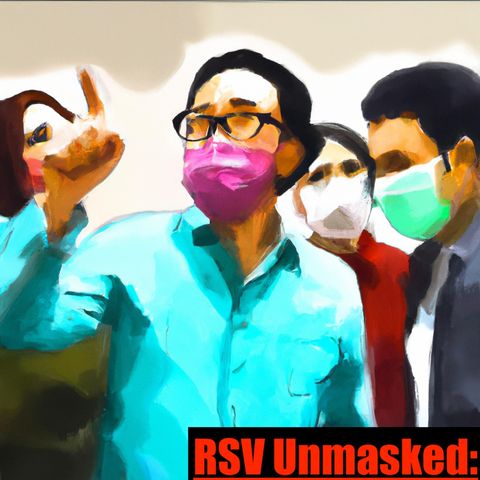
Contactos
Información
RSV Unmasked: Battling the Invisible Foe of Respiratory Health Respirator Syncytial Virus (RSV), a common and highly contagious virus, has long lurked in the shadows, often overshadowed by its more...
mostra más- RSV: RSV is primarily spread through respiratory droplets produced when an infected person coughs or sneezes. It can also be spread through contact with contaminated surfaces.
- COVID-19: COVID-19 is primarily spread through respiratory droplets produced when an infected person coughs or sneezes, or through contact with contaminated surfaces. However, it is more easily transmitted than RSV and can also spread through aerosols, which are tiny particles that can remain suspended in the air for extended periods.
- RSV: RSV can cause a range of symptoms, including runny nose, cough, fever, wheezing, and difficulty breathing. In severe cases, RSV can lead to bronchiolitis and pneumonia.
- COVID-19: COVID-19 can cause a wider range of symptoms, including fever, cough, shortness of breath, fatigue, muscle or body aches, headache, sore throat, congestion or runny nose, nausea or vomiting, and diarrhea.
- RSV: Most RSV infections are mild and resolve on their own within a week or two. However, RSV can be severe for infants, particularly those born prematurely or with underlying health conditions.
- COVID-19: COVID-19 can range from a mild illness to a severe, life-threatening illness. The risk of severe illness is higher for older adults, people with underlying health conditions, and people who are immunocompromised.
- RSV: Diagnosis of RSV infection typically involves a physical examination and assessment of symptoms. A rapid test can also be used to detect the virus in nasal secretions.
- COVID-19: Diagnosis of COVID-19 can be made through a variety of tests, including rapid antigen tests, polymerase chain reaction (PCR) tests, and antibody tests.
- RSV: Currently, there is no vaccine to prevent RSV infection. However, several preventive measures can be taken, including:
- Frequent handwashing
- Avoiding close contact with sick individuals
- Covering coughs and sneezes
- Not sharing utensils or drinking glasses
- COVID-19: There are several COVID-19 vaccines available that are highly effective at preventing severe illness, hospitalization, and death. In addition to vaccination, other preventive measures include:
- Wearing a mask in crowded indoor settings
- Maintaining physical distancing
- Avoiding close contact with sick individuals
- Practicing good hand hygiene

RSV Unmasked: Battling the Invisible Foe of Respiratory Health
RSV Unmasked: Battling the Invisible Foe of Respiratory Health
QP-2RSV Unmasked: Battling the Invisible Foe of Respiratory Health Respirator Syncytial Virus (RSV), a common and highly contagious virus, has long lurked in the shadows, often overshadowed by its more...
mostra más- RSV: RSV is primarily spread through respiratory droplets produced when an infected person coughs or sneezes. It can also be spread through contact with contaminated surfaces.
- COVID-19: COVID-19 is primarily spread through respiratory droplets produced when an infected person coughs or sneezes, or through contact with contaminated surfaces. However, it is more easily transmitted than RSV and can also spread through aerosols, which are tiny particles that can remain suspended in the air for extended periods.
- RSV: RSV can cause a range of symptoms, including runny nose, cough, fever, wheezing, and difficulty breathing. In severe cases, RSV can lead to bronchiolitis and pneumonia.
- COVID-19: COVID-19 can cause a wider range of symptoms, including fever, cough, shortness of breath, fatigue, muscle or body aches, headache, sore throat, congestion or runny nose, nausea or vomiting, and diarrhea.
- RSV: Most RSV infections are mild and resolve on their own within a week or two. However, RSV can be severe for infants, particularly those born prematurely or with underlying health conditions.
- COVID-19: COVID-19 can range from a mild illness to a severe, life-threatening illness. The risk of severe illness is higher for older adults, people with underlying health conditions, and people who are immunocompromised.
- RSV: Diagnosis of RSV infection typically involves a physical examination and assessment of symptoms. A rapid test can also be used to detect the virus in nasal secretions.
- COVID-19: Diagnosis of COVID-19 can be made through a variety of tests, including rapid antigen tests, polymerase chain reaction (PCR) tests, and antibody tests.
- RSV: Currently, there is no vaccine to prevent RSV infection. However, several preventive measures can be taken, including:
- Frequent handwashing
- Avoiding close contact with sick individuals
- Covering coughs and sneezes
- Not sharing utensils or drinking glasses
- COVID-19: There are several COVID-19 vaccines available that are highly effective at preventing severe illness, hospitalization, and death. In addition to vaccination, other preventive measures include:
- Wearing a mask in crowded indoor settings
- Maintaining physical distancing
- Avoiding close contact with sick individuals
- Practicing good hand hygiene
Información
| Autor | QP-2 |
| Organización | William Corbin |
| Categorías | Salud y forma física , Medicina , Noticias |
| Página web | - |
| corboo@mac.com |
Copyright 2024 - Spreaker Inc. an iHeartMedia Company
